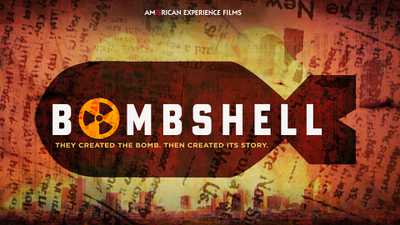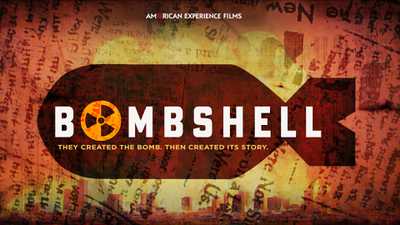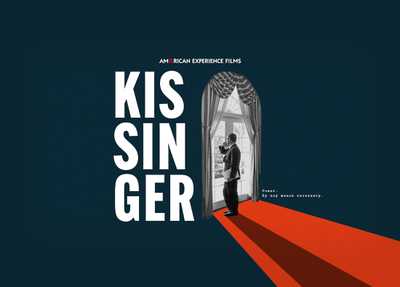The Presidents on Kissinger
He served directly under two presidents and advised ten others. Over the course of seven decades in public life, Dr. Henry Kissinger crossed party lines and wielded influence at the highest levels of power. To admirers, he was a brilliant strategist; to critics, a symbol of ruthless realpolitik. That duality defined his career and shaped how presidents themselves spoke about him.
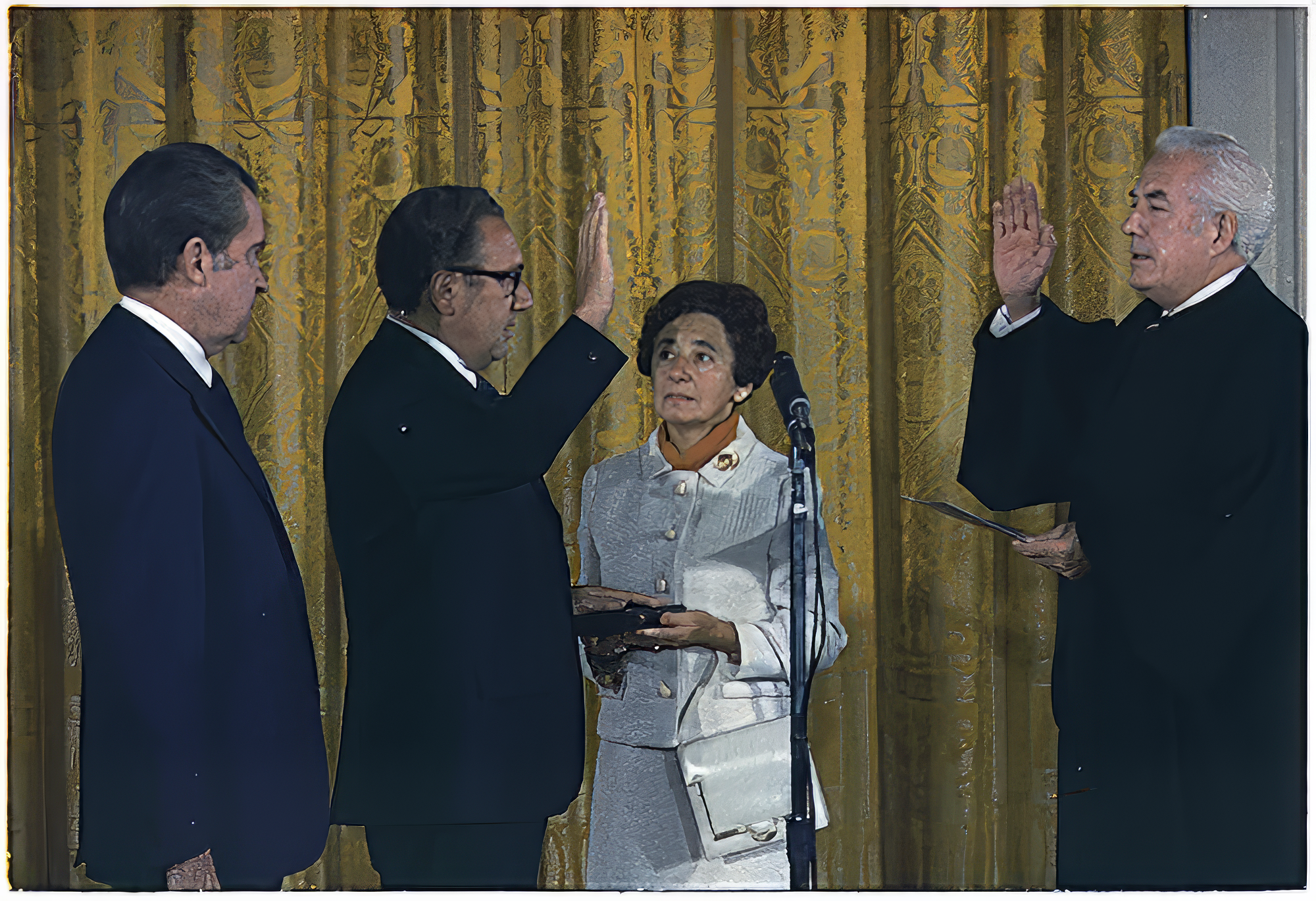
Kissinger famously said, “We are all the president’s men.” Here is a snapshot of Henry Kissinger, from all his presidents.
John F. Kennedy
At 39, Kissinger’s first official foothold in Washington came under President John F. Kennedy. His former Harvard dean, McGeorge Bundy, went to work for Kennedy in 1961 as the President’s National Security Advisor and Kissinger soon followed when Kennedy appointed him as a part-time consultant, splitting his time between Washington and his work as a professor at Harvard. Brought in primarily for his expertise on nuclear weapons and strategy, he advised on deterrence and arms control, an area that would define much of the Cold War.
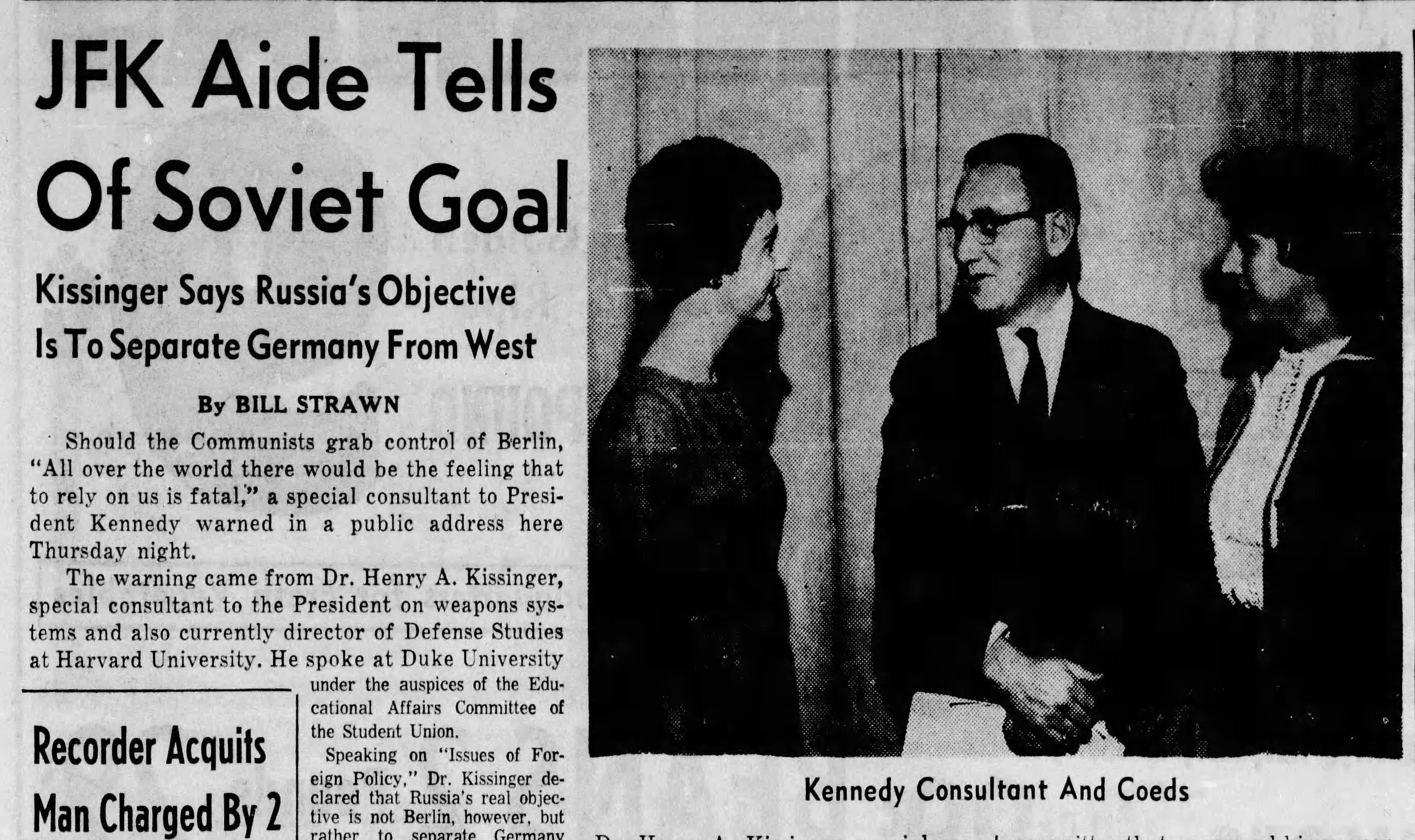
Lyndon B. Johnson
Then-Senator Johnson saw potential in Kissinger early on and, in 1960, praised him as “that able young man.”
As president, he sent Kissinger to Vietnam several times to assess U.S. policy. Kissinger’s reports from the conflict boosted his credibility in Washington and set the stage for his appointment as secretary of state to Johnson’s successor, Richard Nixon.
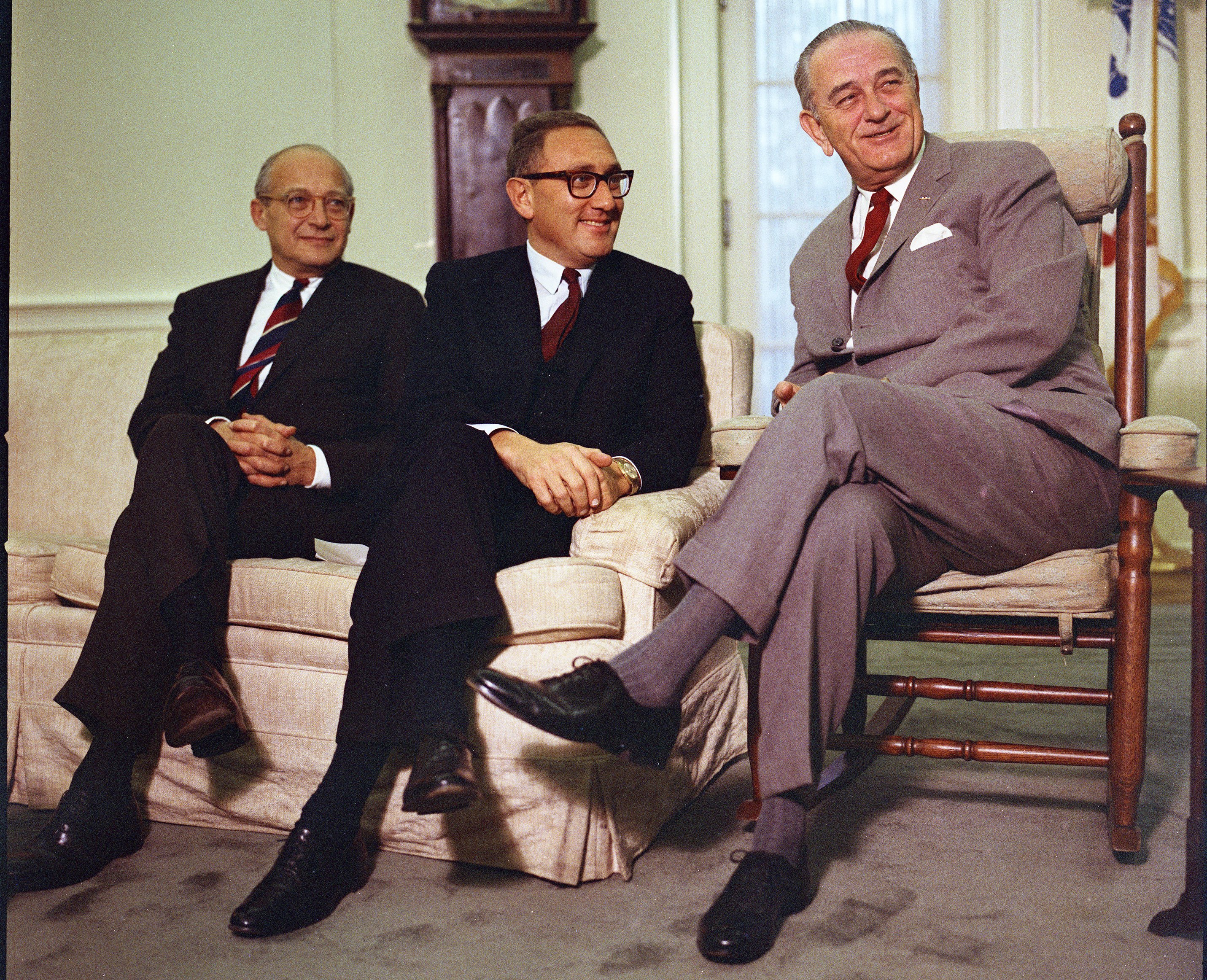
Before he left office, Henry Kissinger met with the President and his advisor on national security matters, Walt Rostow, to prepare for the transition and get a briefing on “world problems.”
Richard Nixon
When Henry Kissinger was appointed as Nixon’s assistant for national security affairs, headlines touted him as “No-Yes Man.” And Nixon relied on Kissinger as his closest foreign policy partner. Reflecting on his work with Kissinger in an interview with The Nixon Foundation, he said:
“Henry Kissinger is, I think to anybody that has met him or worked with him or heard him speak, is without question an intellectual genius. He is also a world-class strategic thinker. I think what impresses me the most about Kissinger, however, is his stamina. It is absolutely incredible. There is no one in the world, not in history, not now, not in the future, who can outwork or outlast Henry Kissinger in negotiation. That’s why he is a great negotiator.”
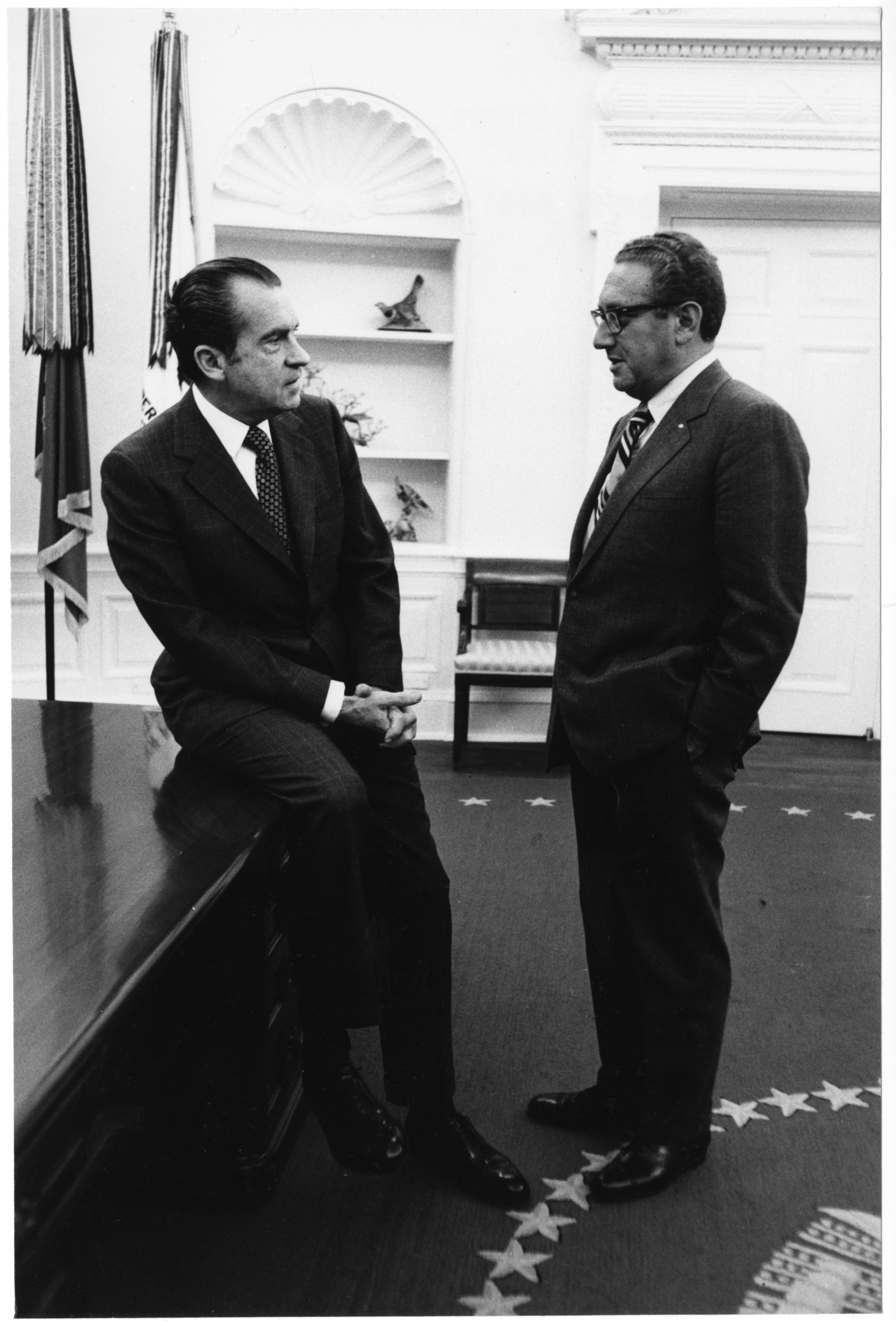
But the partnership was not without tension. In secret recordings released in 1999, The Washington Post reported that then-President Richard Nixon shared that Henry Kissinger was “the man that has the greatest influence on me,” but added that “sometimes he is as wrong as hell.”
Gerald Ford
Ford inherited Kissinger as secretary of state and found him both brilliant and surprisingly sensitive.
“Henry publicly was a gruff, hard-nosed German-born diplomat, but he had the thinnest skin of any public figure I ever knew.”
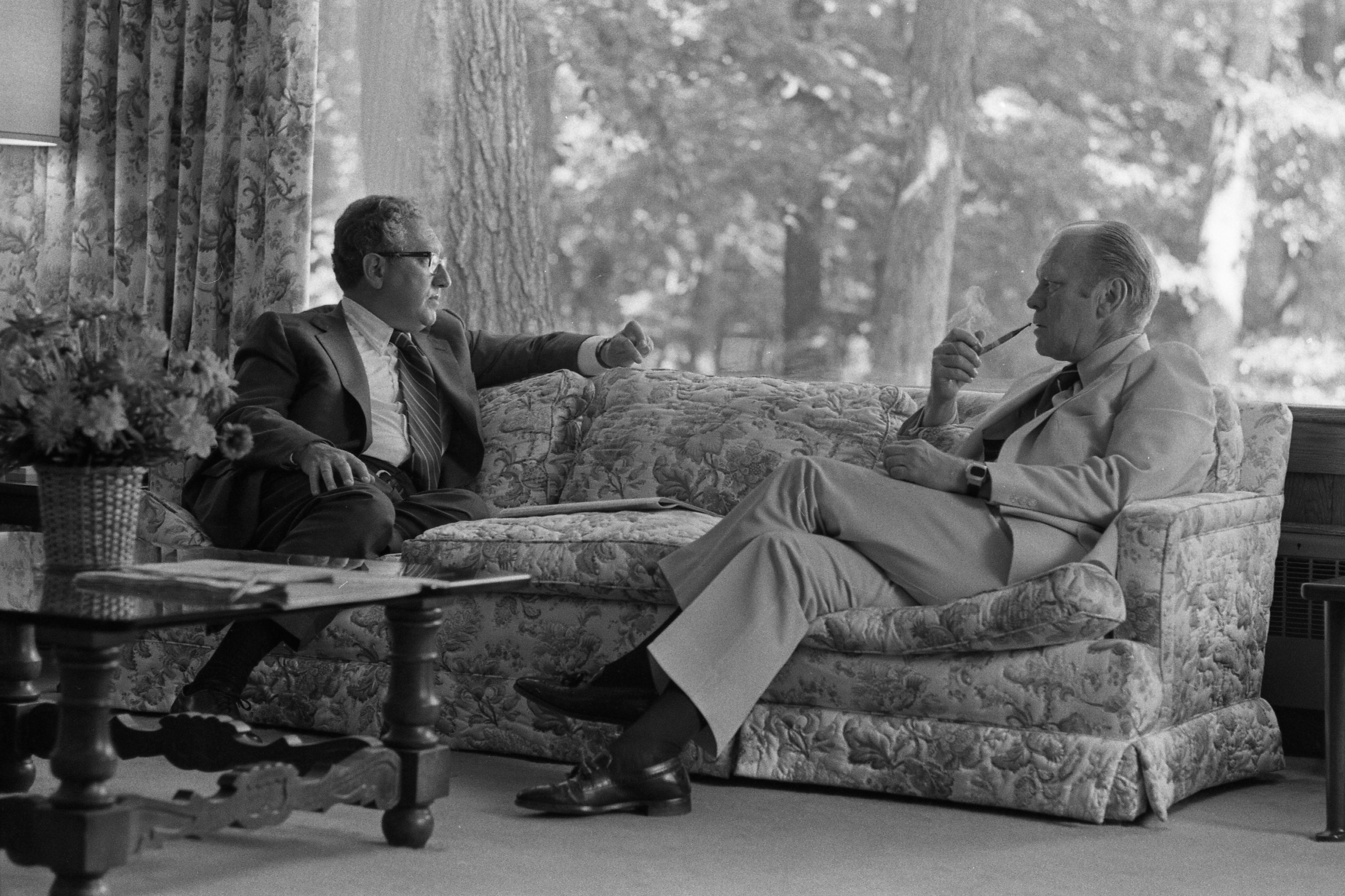
Jimmy Carter
Carter made clear from the start that Kissinger’s style of diplomacy had no place in his White House.
In November 1976, the Associated Press reported, “Carter indicated that he agreed with the primary direction of U.S. policy but disagreed with what he claimed was the amoral, secretive, and highly personal way in which Kissinger conducted it.”
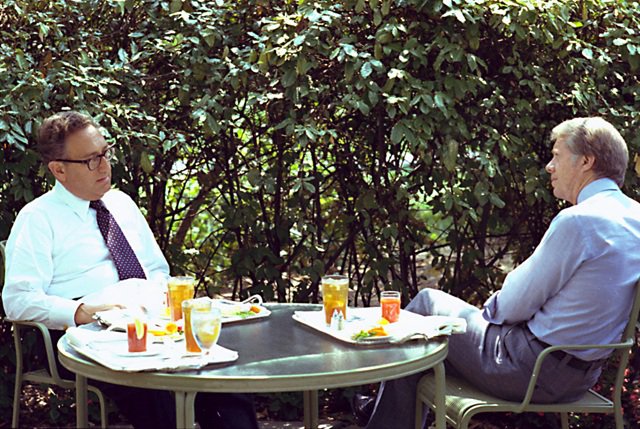
By 1979, he wrote in the margin of a memo, “H.K. is a liar & also irresponsible. We must prepare to tell the truth about him.”
Even though Kissinger had no formal role in Carter’s administration, the two still met occasionally.
Ronald Reagan
Though he once campaigned against Kissinger’s approach, Reagan later brought him back into government service. In 1983 he appointed Kissinger to head a bipartisan commission on U.S. policy in Central America saying:
“I’ve chosen him for this committee because I believe here is a man with a distinguished record in diplomacy. I believe he is exceptionally well qualified to bring back the information that, I think, we all need and that would help the Congress make the decisions it needs to make about Central America.”
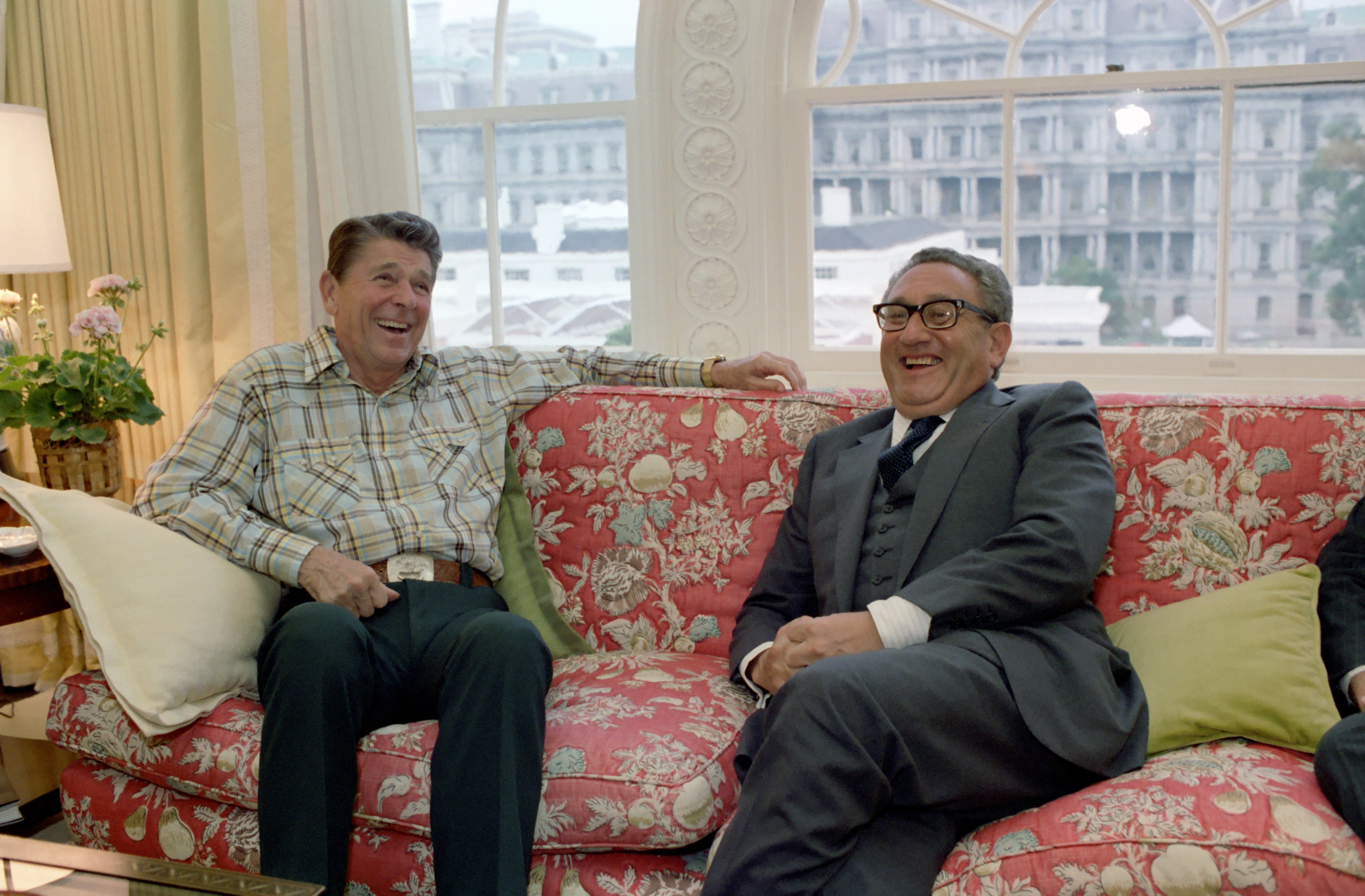
In addition to the commission on Central America, Reagan also later asked him to serve on national security advisory boards.
George H.W. Bush
Not yet president, but as an envoy to China, Bush observed Kissinger’s mix of arrogance and brilliance up close. From his China Diary November 20, 1974:
“Kissinger is an extremely complicated guy. He is ungracious, he yells at his staff, he is intolerable in terms of human feelings. Dictatorial. ‘Get people here.’ ‘Have those people here,’ ‘Where are they?’ ‘Why do I need these papers?’ ‘Where are my papers?’ And yet all those petty little unpleasant characteristics fade away when you hear him discussing the world situation. He comes alive in public.”

Bill Clinton
President Bill Clinton corresponded with Dr. Kissinger and met with him in the Oval Office to discuss China during his presidency. In a March 1, 1995, speech at the Nixon Center for Peace and Freedom Policy Conference, President Clinton joked:
“[O]f course, to Henry Kissinger -- I was thinking when he said we both spoke with accents, judging from the results of the last election, his native country is still claiming him more than mine is claiming me. (Laughter.) But I’m a big one for reconciliation. (Laughter.) And there’s plenty of time to achieve it.”
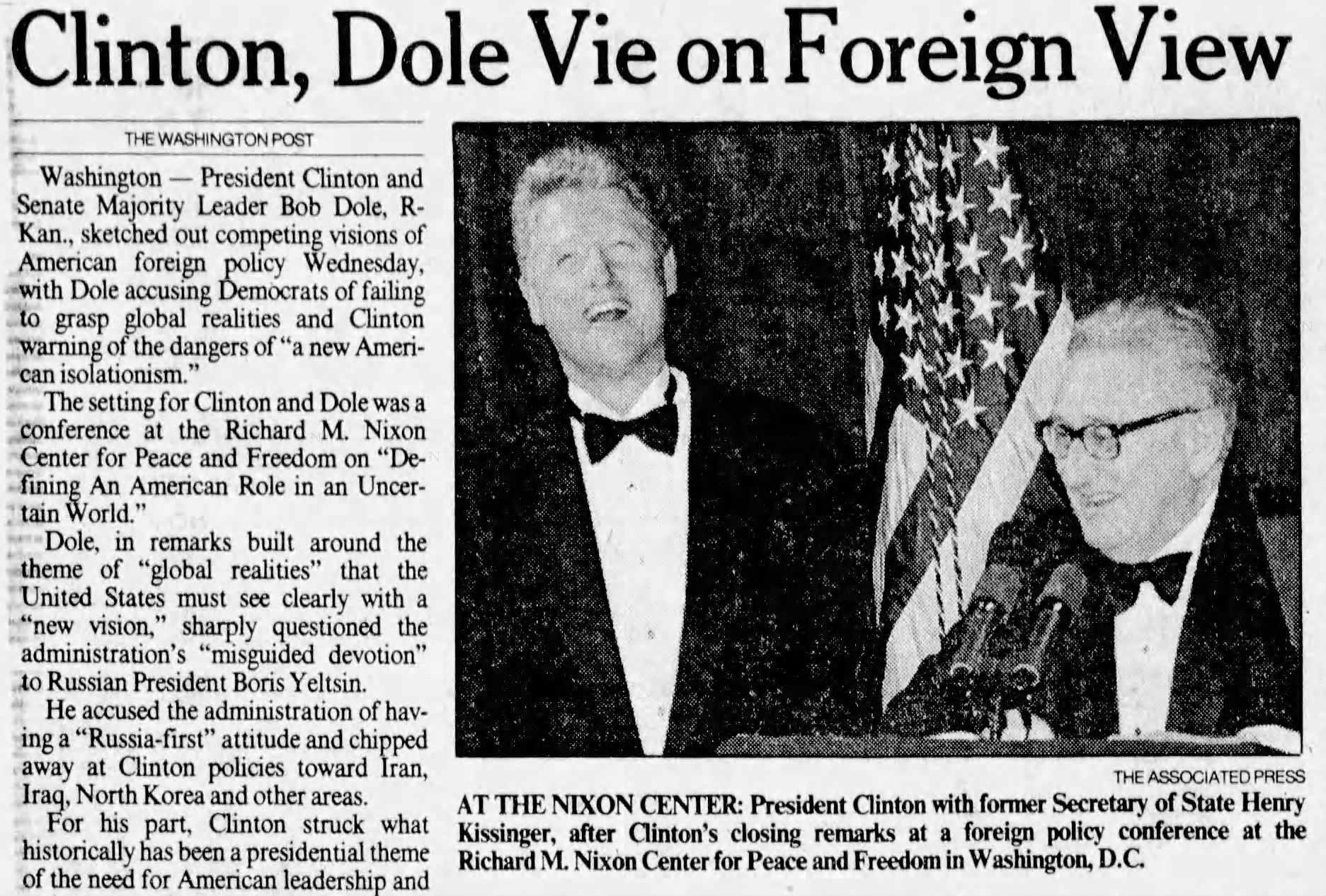
George W. Bush
Kissinger met regularly with President Bush and advised the administration after the September 11, 2001 terrorist attacks. On his passing, Bush said:
“I have long admired the man who fled the Nazis as a young boy from a Jewish family, then fought them in the United States Army. When he later became Secretary of State, his appointment as a former refugee said as much about his greatness as it did America’s greatness.”
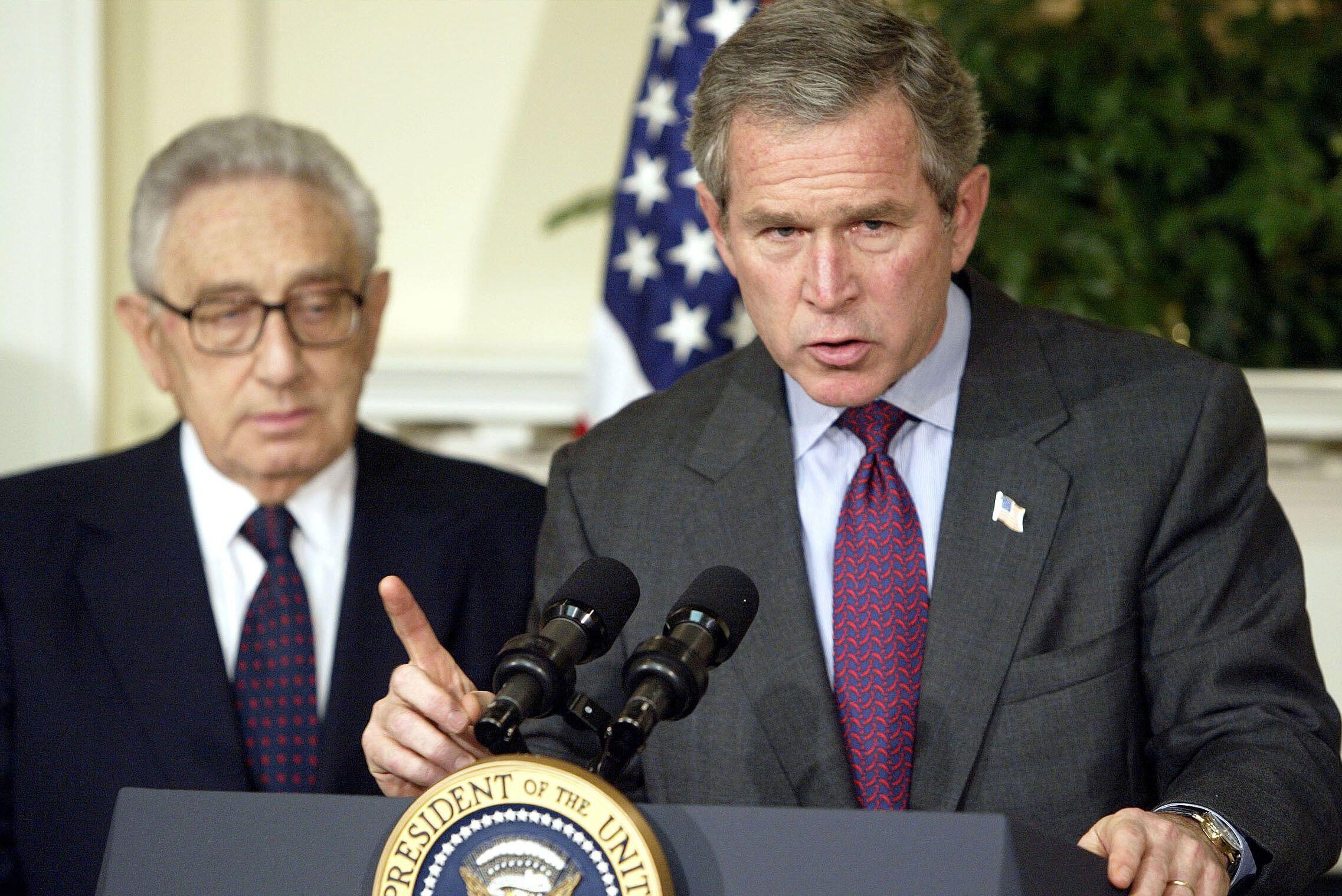
Barack Obama
In 2009, President Obama met with Henry Kissinger and three experts in the field of nuclear nonproliferation and disarmament. Where he said:,
“I just had a wonderful discussion with four of the most preeminent national security thinkers that we have -- a bipartisan group of George Shultz, Henry Kissinger, Bill Perry, and Sam Nunn…I don’t think anybody would accuse these four gentlemen of being dreamers. They’re hard-headed, tough defenders of American interests and American security. But what they have come together to help galvanize is a recognition that we do not want a world of continued nuclear proliferation, and that in order for us to meet the security challenges of the future, America has to take leadership in this area.
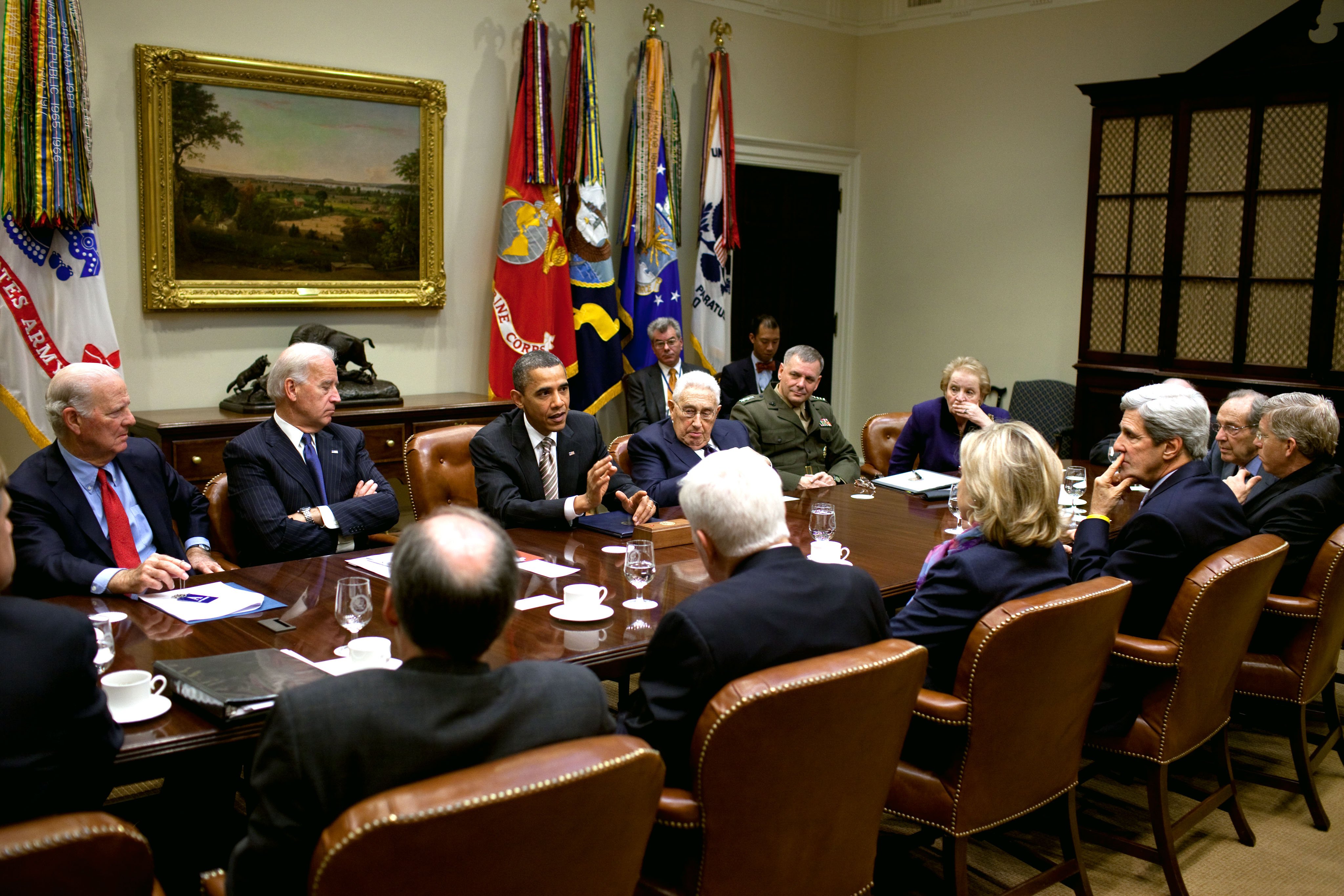
But he was also critical of Kissinger saying this in a 2016 interview in The Atlantic, “We dropped more ordnance on Cambodia and Laos than on Europe in World War II, and yet, ultimately, Nixon withdrew, Kissinger went to Paris, and all we left behind was chaos, slaughter and authoritarian governments that finally, over time, have emerged from that hell.”
Donald Trump
During a meeting in the Oval Office on October 10, 2017, President Trump remarked:
“Henry Kissinger has been a friend of mine. I’ve liked him, I’ve respected him. But we’ve been friends for a long time, long before my emergence in the world of politics, which has not been too long.”
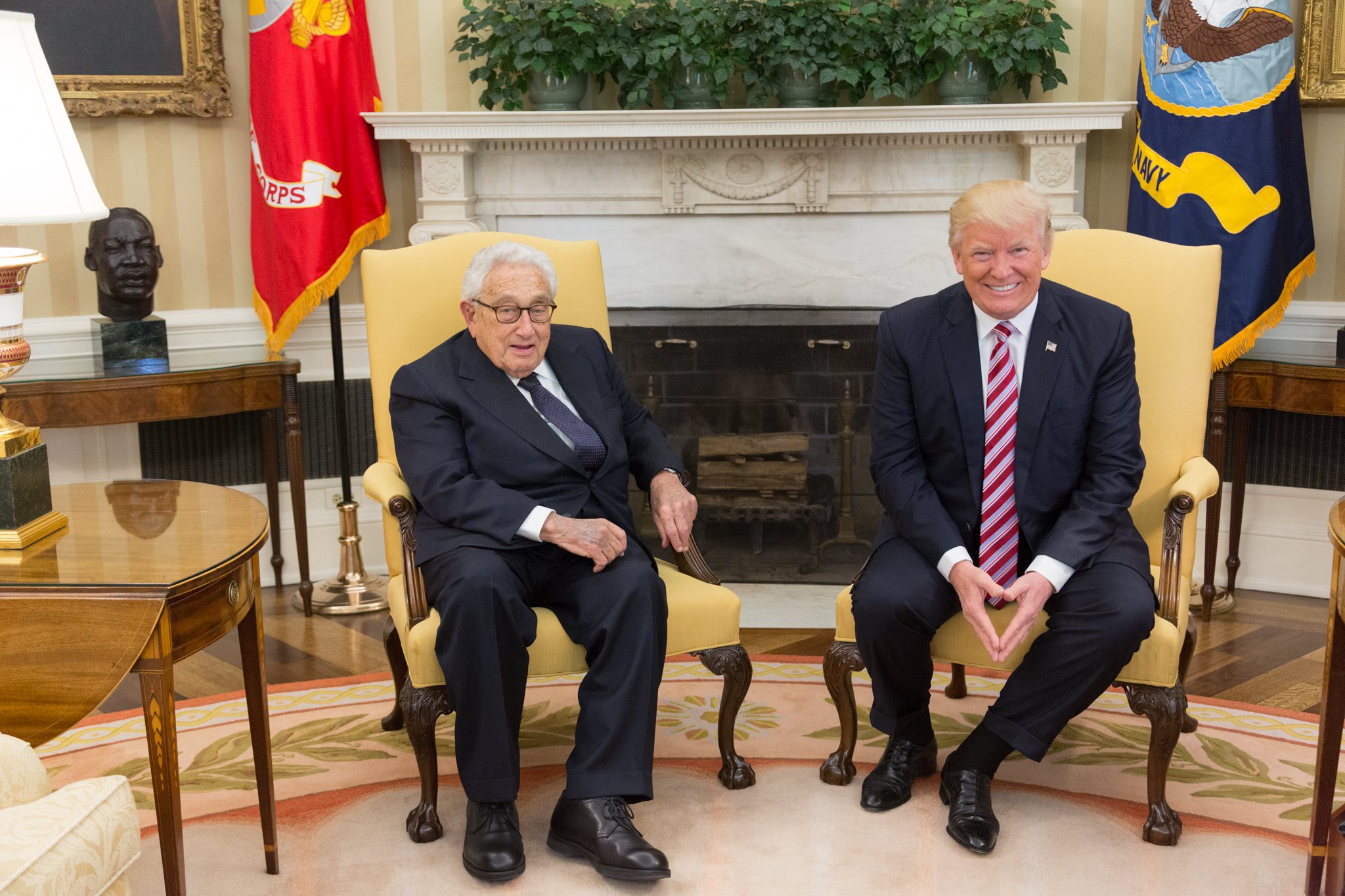
Joe Biden
The day after Dr. Kissinger’s death, then-President Biden released a statement saying:
“I’ll never forget the first time I met Dr. Kissinger. I was a young senator, and he was secretary of state — giving a briefing on the state of the world. Throughout our careers, we often disagreed. And often strongly. But from that first briefing, his fierce intellect and profound strategic focus were evident.”
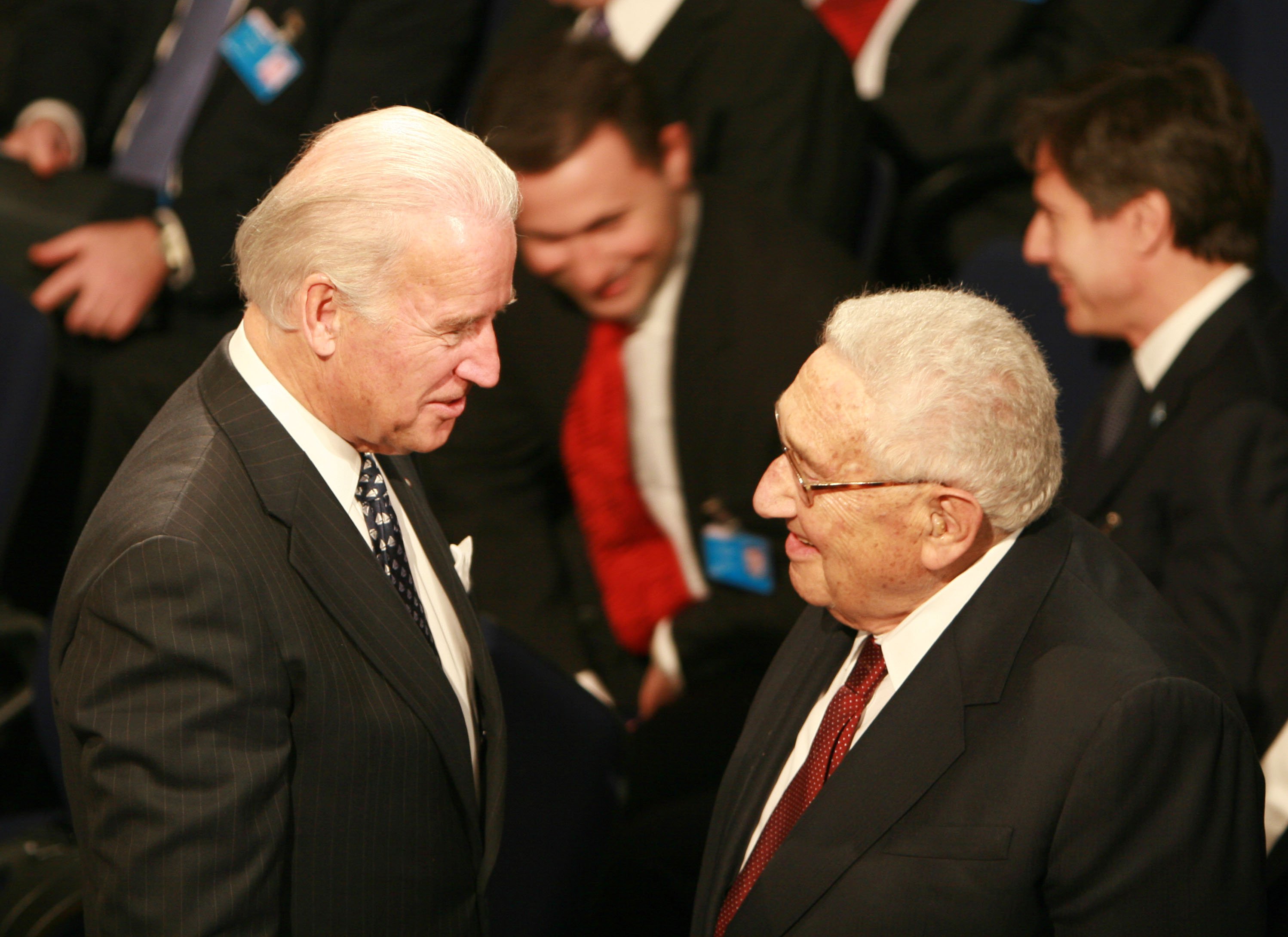
Presidential reflections on Henry Kissinger highlight both the scope of his influence and the controversy surrounding his methods. But, ever the diplomat, Kissinger was able to reach across party lines and extend his influence for decades. The outcomes of his strategies, ranging from diplomacy to covert interventions, continue to shape global politics and impact the lives of people in regions influenced by America’s foreign policy.
